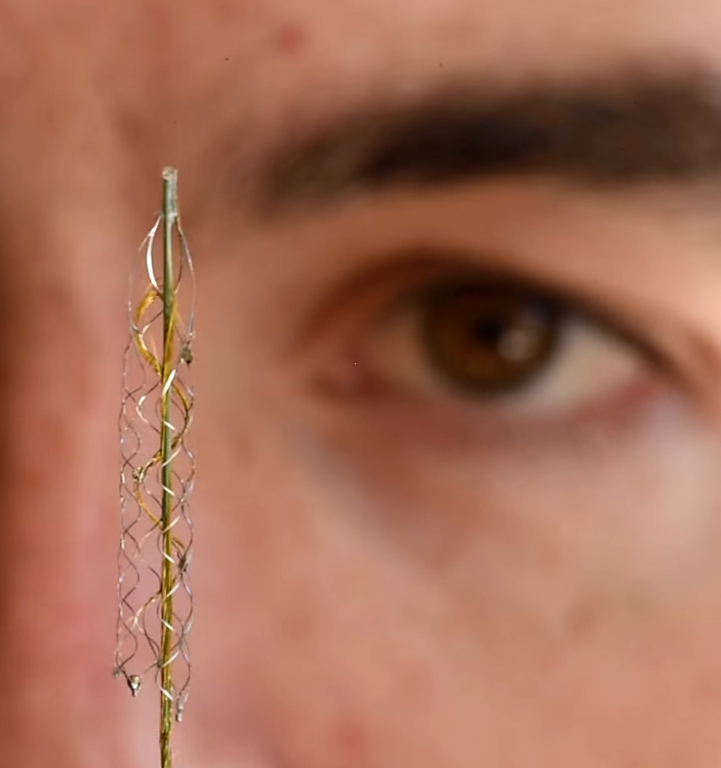Stentrode tests successful
 A tiny brain device has been shown to help patients with upper limb paralysis to text, email and even shop online.
A tiny brain device has been shown to help patients with upper limb paralysis to text, email and even shop online.
Experts have completed the first human trials of the Stentrode.
It was implanted successfully in two patients, who both suffer from severe paralysis due to motor neuron disease (MND) – also known amyotrophic lateral sclerosis (ALS) – and neither had the ability to move their upper limbs.
The Stentrode was able to wirelessly restore the transmission of brain impulses out of the body. This enabled the patients to successfully complete daily tasks such as online banking, shopping and texting, which previously had not been available to them.
The two patients used the Stentrode to control the computer-based operating system, in combination with an eye-tracker for cursor navigation. This meant they did not need a mouse or keyboard.
They also undertook machine learning-assisted training to control multiple mouse click actions, including zoom and left click. The first two patients achieved an average click accuracy of 92 per cent and 93 per cent, respectively, and typing speeds of 14 and 20 characters per minute with predictive text disabled.
The Royal Melbourne Hospital’s Professor Peter Mitchell implanted the device on the study participants through their blood vessels, next to the brain’s motor cortex, in a procedure involving a small ‘keyhole’ incision in the neck.
Neurointerventionalist and CEO of Synchron – the research commercial partner – Associate Professor Thomas Oxley, said this was a breakthrough moment for the field of brain-computer interfaces.
“We are excited to report that we have delivered a fully implantable, take home, wireless technology that does not require open brain surgery, which functions to restore freedoms for people with severe disability,” Associate Professor Oxley.
The researchers caution that while it is some years away before the technology, capable of returning independence to complete everyday tasks is publicly available, the global, multidisciplinary team is working to make this a reality.








 Print
Print